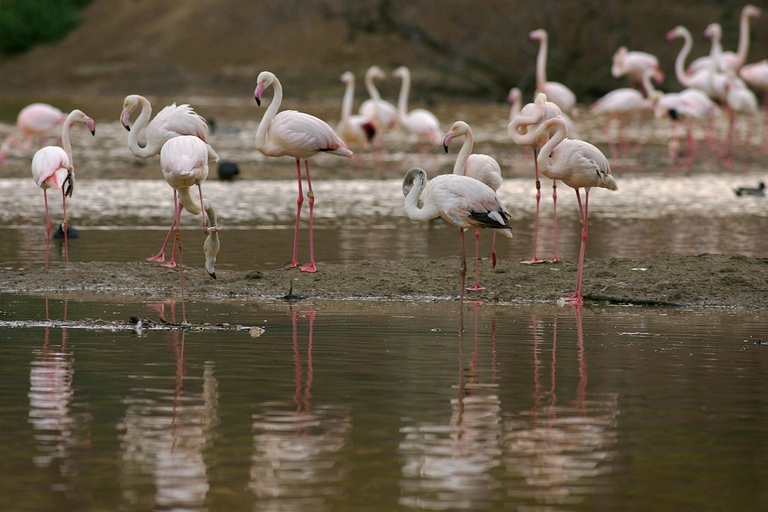
A report by Ember explains that in 2025 electricity generation from renewables (solar, wind and hydropower) surpassed that from fossil fuel sources.
Il governo spagnolo ha annunciato di voler rinunciare al progetto di dragaggio del fiume Guadalquivir, salvando così l’area umida del Parco Nazionale Doñana.
The Guadalquivir River won’t be dredged up. The biodiversity-rich wetlands of the Doñana National Park has been granted protection, at least for the moment. The announcement comes from the Spanish government, which has submitted a report to UNESCO saying that it won’t allow dredging operations in the river.
The project to divert the river, as denounced by WWF, was planned to allow commercial ships to cross the watercourse. But due to its huge impact, this would have led the Doñana National Park to be listed as a World Heritage in Danger.
In 2015 the European Commission initiated an infringement procedure against the government of Madrid for the project’s irregularity. However, the statements released by the Andalusian regional authorities and the central government haven’t been enough to reassure WWF, which is asking to make the procedure official through regulations applicable by July 2017, when the World Heritage Committee will gather.
“The Coto Doñana has been given a suspended sentence thanks to the decision made by the Spanish government,” said Juan Carlos del Olmo, head of WWF-Spain. “We’ve been issuing a warning for 15 years, but the park is still threatened by the illegal and unsustainable use of water for agriculture, mining and drilling”.
The Doñana National Park, not far from Seville, is home to immense wetlands and rushes, and is precious for migratory birds. This area has an incredible biodiversity, being home to more than 4,000 animal and plant species. Flamingos, herons and cranes can be observed, along with one of the world’s rarest and most endanger mammals, the Iberian lynx (Lynx pardinus).
Siamo anche su WhatsApp. Segui il canale ufficiale LifeGate per restare aggiornata, aggiornato sulle ultime notizie e sulle nostre attività.
![]()
Quest'opera è distribuita con Licenza Creative Commons Attribuzione - Non commerciale - Non opere derivate 4.0 Internazionale.
A report by Ember explains that in 2025 electricity generation from renewables (solar, wind and hydropower) surpassed that from fossil fuel sources.
The Tyler Prize, considered the “Nobel Prize for the Environment,” has been awarded to Toby Kiers, an American biologist working in Amsterdam.
Belgium is one of the countries most exposed to climate change. Dune–dikes are a solution to curb sea-level rise.
Between October 2024 and September 2025, the average temperature in the Arctic was 1.6 degrees Celsius higher than during the 1991–2020 period.
Undeclared conflicts of interest, paid authors, lack of transparency: one of the most cited studies on glyphosate, published in 2000, has been retracted.
The Copernicus service has released data for the first eleven months of 2025: global warming is set to come close to last year’s record.
The European Council and Parliament have reached an agreement on the European Commission’s proposal to deregulate new GMOs. But farming, organic agriculture, and environmental organizations are calling for it to be stopped.
The world’s second-largest producer has taken a historic decision. However, farms will have until 2034 to shut down.
A Greenpeace report denounces Russia’s political and economic model: a nexus of extractivism, authoritarianism and war that is destroying the environment, with serious repercussions for the global ecosystem.









